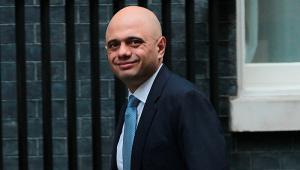Javid acknowledged that there was an error in the methodology used to calculate the amount of funds due to councils on the 100% business rates retention pilot scheme, in a statement today.
As a result of this mistake, 27 local authorities and the Greater London Authority have been over-compensated by £36m.
Despite this, Javid has said the department will not seek to reclaim these funds, given the late stage of the financial year.
He said: “A sudden reduction in their funding could potentially have an impact on the delivery of the objectives agreed as part of their devolution deals.
“Therefore, although the rules of Managing Public Money indicate that the department should recover the overpayment, I have issued a direction requesting that the permanent secretary does not do so in this extraordinary circumstance.”
CIPFA’s chief executive Rob Whiteman said: “This is a very complex system as demonstrated by a modelling error not being evident to the government or councils before now.
“The unusual step of a ministerial direction to the permanent secretary to not clawback the 2017-18 error shows that the Ministry of Housing and Local Government recognises that for the 10 rate retention pilot authorities this news comes very late in the year.
“The affected councils will of course be disappointed that when guidelines are issued for the 2018-19 rate retention pilots, there will be less resource than they may have modelled based on current data.”
Mark Lloyd, chief executive of the Local Government Association, tweeted he was happy Javid had decided not to seek repayment for the mistake.
Two key extracts attached from today’s @mhclg letters regarding a £36m error in this year’s Business Rates Retention Pilots
— Mark Lloyd (@MarkLloydLGA) March 20, 2018
Good call by @sajidjavid not to seek repayment in 2017/18 as a result of this departmental error: pic.twitter.com/iRoQXyIaiY
MHCLG’s error is the second one this year, after the department published incorrect figures relating to business retention rates, which meant that 195 councils saw their settlement reduced.
The review announced today will include modelling and analytical work, how officials manage the interface with policy decision-making and resourcing skills.
Under government plans, the share of business rates kept by English councils will rise from 50% to 75% in 2020.











